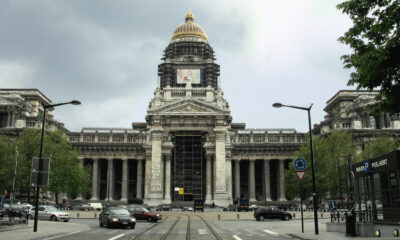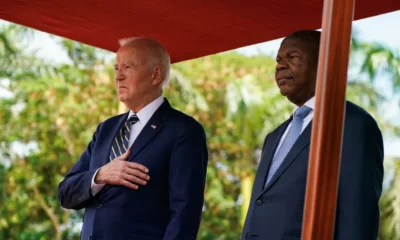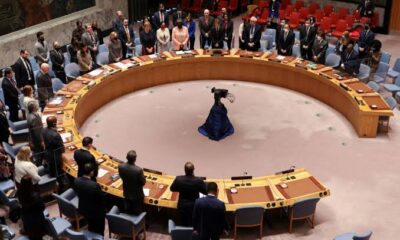Military coups became the norm in several African countries shortly after independence until the 1990s when the current ‘wave’ of democracy began. The contagion effect from the January 13, 1963 coup in Togo, the first in Africa, in which President Sylvanus Olympio was assassinated, soon spread like wildfire across the continent.
There have been over 200 attempted coups in Africa since the 1950s, with about half of these succeeding. Out of the 54 countries in Africa, 45 have had at least one coup attempt since 1950. Sudan has the most number of military coups – 17, out of which six succeeded. Burkina Faso is the most adept in planning and executing a military coup, with nine successful military takeovers and only one failed attempt.
After a period of relative democratic stability in the current ‘wave’ of liberal democracy in the continent, military coups are making a fast comeback, with the recent takeover in Gabon coming just one month after soldiers seized power in the Niger Republic. In 2021, there were six coup attempts in the continent, four of them successful. Of the 18 coups recorded globally between 2017 and 2022, all but one – Myanmar in 2021 – took place in Africa. This probably prompted the UN Secretary-General António Guterres to warn in 2021 that “military coups are back”. What does the resurgence of military coups in Africa tell us about the fate of liberal democracy in the continent?
There are several observations: One, the democratic space tends to be elastic. It can expand or contract without democracy necessarily being under a mortal threat. American political scientist Samuel Huntington who called the current round of liberal democracy in “the modern world”, a “third wave”, noted that each of the two earlier waves was followed by reversals. He pointed out that the first “long” wave of democratisation, which began in the 1820s, with the widening of the suffrage to a large proportion of the male population in the United States and continued for almost a century until 1926, leading to 29 countries in Europe and America becoming democracies, was followed by a ‘reverse wave’. This was when Mussolini came to power in Italy such that by 1942, the number of democratic states in the world had reduced to 12.
Again the second wave of democracy, which started with the triumph of the Allies in World War II and reached its zenith in 1962 (when 36 countries became democracies) was followed by a reverse wave from 1960 to 1975, which brought the number of democracies down to 30. In essence, it can be argued that liberal democracy oscillates between surges and reversals in accordance with the boom and bust cycles of capitalism. Even within national governments in the contemporary Western world, we see often an oscillation between right-wing authoritarians (Trump for example) and those on the left of the political spectrum (Joe Biden for instance). This raises a fundamental question of whether the current surge in military coups in Africa is the normal ‘reversal wave’ that follows a period of democratic surge.
Two, it must be pointed out that military coup – forceful seizure of political power by the military – is not the only threat to liberal democracies in Africa. We also have constitutional coup-making whereby those elected to office change the constitutions of their country to elongate their tenure. Though 33 out of about 48 new constitutions in Africa enacted in the 1990s provided for term limits of two terms for the office of the president, nearly 30 countries contemplated the removal of term limits since 1998, with many succeeding. Electoral manipulations and rigging such that electoral outcomes are not believed to represent the wishes of the electorate also alienate voters from the electoral process and thus equally constitute a threat to democracy. In several French African countries, anti-French sentiments and the inability of governments to deal with some developmental challenges (such as defeating Jihadism) are yet another source of disillusionment that provides ammunition for the military to strike.
Three, a major difference between the practice of democracy in the advanced states of Europe and the USA and its practice in Africa is that while the basis of nationhood is already settled in the former, in the latter, even the basis of statehood remains contested in many countries. This poses severe challenges to especially two key components of democracy – freedom of speech and conduct of elections. Precisely because most of the states in the continent are just emerging from a prolonged period of dictatorship, the free speech guarantees of liberal democracy tend to facilitate the unleashing of bottled-up feelings from the authoritarian era. This aggravates the structures of conflict in the society, exacerbates inter-ethnic tensions and suspicions and complicates the nation-building process. In essence, while democratic reversals in the West do not, strictly speaking, threaten democracy or the nation-state, in Africa, military coups could threaten the state system because it could be construed as an attempt by one or more ethnic groups (who share ethnic identities with the coup leaders) to gain undue advantage for their ethnic groups. The consequent resentment is bottled up but unleashed in several ways, including separatist agitations, whenever an opportunity presents itself.
There is a similar challenge with the conduct of elections. In virtually all parts of Africa, politicians take literally the injunction by Kwame Nkrumah, Ghana’s first Prime Minister and President, to “seek first the political kingdom and every other thing will be added unto you”. There are two major explanations for this: the first is that political power is seen as a veritable instrument of wealth accumulation. The second is a pervasive fear that any group that captures state power will use it to privilege its in-group and disadvantage the others. Elections, therefore, tend to be very anarchic, almost a warfare. Losing the presidential election could mean your ethnic group will be excluded from the dining table by the triumphant winning group or coalition.
This alienates the others from both the democratic process and the state system they feel marginalises them. Four, democracy in the continent suffers from an expectation crisis. Take for instance what Nigerians call ‘democracy dividend’. There is a presupposition that democracy will lead to economic development and an improvement in the standard of living of the people. The truth, however, is that there is no conclusive evidence in the literature that liberal democracy could offer such. On the contrary, many of the countries in Asia whose economies grew exponentially, including China, Malaysia and Singapore, did so under benevolent dictatorships.
People are also frustrated about the quality of leaders they get under democracy. Again democracy only promises to allow people to choose from those who presented themselves to be elected. Given that it is mostly those who have the financial wherewithal and the necessary rough edges to compete that present themselves for election, people often do not feel that the leaders they get are the best available. This, coupled with the manipulation of the electoral system, and generalised feeling that the costs of running the democracy is not worth it, lead to a further aggravation of the disillusionment with democracy.
Five, what will be the option for Africa? In the immediate post-independence period, many African leaders – Kwame Nkrumah in Ghana, Nyerere in Tanzania, Kenneth Kaunda in Zambia and a host of others instituted a one- party state. Their basic argument was that political parties signified the institution of divisions, and therefore un-African. They also argued that Africa was in a state of emergency and, therefore, could not afford the luxury of institutionalising divisions. Others like Museveni, who came to power in 1986, claimed he was running a ‘no party democracy’. Then came the period of military rule in which the military was extolled as a modernising institution that hated the corruption, indiscipline and politicisation of primordial identities by the politicians.
Unfortunately, unlike in some Asian countries where benevolent dictatorship led to economic development and improvement in the general welfare, African autocracy of various hues proved incapable of being engines of economic development or nation-building. Frustrations with governance were in some cases transferred to frustrations with the state, with some groups clamouring to de-link from the state system while others seem to be in perpetual search for a political messiah to turn things around. It seems a more realistic option open to Africans is to engage in robust conversations about how to adapt liberal democracy to its unique environment because it seems obvious that while Africans cherish the freedoms that democracy offers, they are generally disappointed by the governance systems in the continent.









































